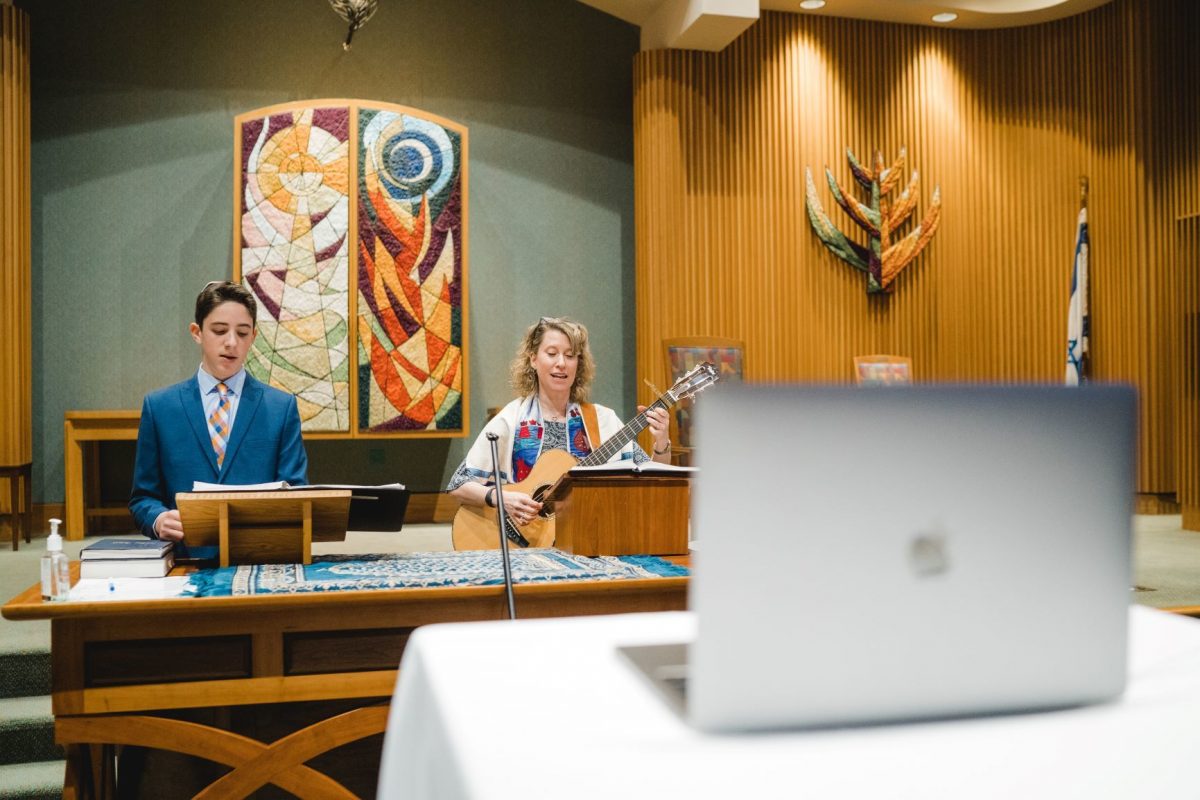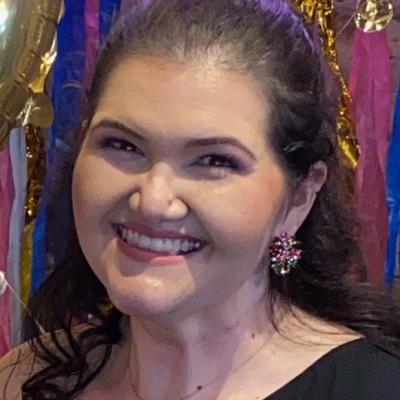
This isn’t how we drew it up.
As coronavirus trimmed our bar mitzvah guest list from triple digits down to 50, and then from 50 down to 10, we didn’t know what to do. We’d already kiboshed the Friday-night dinner for out-of-towners, the Saturday-afternoon party at Mustang Alley’s, and the Sunday brunch. And now we were seriously considering canceling the March 21 service itself. Or at least postponing it.
But Jackson was adamant about soldiering on. About doing what the Jewish people have been doing for centuries. So that’s what he did. That’s what we did.
“I’ve never done anything like this in my life,” said Rabbi Marc Dissick, kicking off the surreal Saturday-morning service inside the cozy chapel at Temple Har Sinai-Oheb Shalom in Baltimore.
Thanks to the magic of a teleconferencing technology called Zoom (one of the only stocks that’s actually ticking up lately), his virtual congregation was assembled on a charcoal MacBook Pro, which was resting atop an AV cart draped with a white tablecloth and stationed 10 feet in front of the bima. Dozens of squares filled up the computer screen, each one containing a face or two. It was like The Brady Bunch on steroids. But with better music.
As soon as cantorial soloist Leslie Pomerantz started strumming her guitar and singing “Mah Tovu,” an undeniable feeling of rightness washed over me. I glanced around at the handful of guests gathered in the chapel. My wife Whitney. Our two other sons, Ben and Jonah. And Jackson’s bubby.
Full disclosure: There was also a photographer and videographer, both of whom I thought were superfluous given the circumstances. Fortunately, Whitney disagreed. I saw the smiles on everyone’s faces and knew right then that we were onto something.
The next 90 minutes were pretty much what you’d expect from a typical Saturday- morning bar mitzvah. Whitney presented Jackson with his tallit (prayer shawl), which she’d brought back from her 2017 trip to Jerusalem expressly for this purpose.
We opened the ceremonial ark that holds the sacred scrolls known as Torahs and sang along with Leslie. Jackson read in Hebrew from the Torah and then delivered a sermon on the importance of kehilah, which turned out to be especially poignant amidst all the COVID craziness and social distancing. So yeah, we checked all the usual bar mitzvah boxes. But we checked some pretty unusual ones, too.
My brother and his family, who live in North Carolina, were supposed to do an aliyah (an honor that entails coming up to the bima, chanting a couple prayers, and standing by Jackson’s side while he reads from the scroll). But the day before the service, they decided that the trip was simply too risky for a group that included my immunocompromised nephew. So instead, they conferenced in from home—while dressed in full synagogue attire—and did what might have been the first ever remote aliyah.
Not to be outdone, Whitney’s Uncle Barry and Aunt Judy in Florida inadvertently became the life of the online chat room thanks to their imperfect knowledge of Zoom’s mute functionality. Then there was Jordan Small, an old college pal who was brave enough to be the board member on duty. Essentially a one-man congregation, he became the Rabbi’s running joke (“Jordan Small please rise…Jordan Small please be seated”).
As the day unfolded, with all its organic quirks and unexpected moments, it became increasingly obvious that we were taking part in something special. But it wasn’t until afterward that we realized just how meaningful our Zoom service had been.
“I don’t know if I’ve ever experienced a bar mitzvah as warm and intimate as Jackson’s,” said Jen, a family friend who lives here in Baltimore. “We expected to log on and feel like spectators from afar, but instead we felt like an intimate part of your kehilah.”
Outside of Maryland, the impact of our virtual ceremony might have been even more profound.
“This was a really good idea,” texted our friend Gary, who lives in Manhattan, where coronavirus has been especially destructive, turning the city that never sleeps into the city that looks a whole lot like the backdrop of an I Am Legend prequel. “I suspect it’s more moving for us in the ether than you all. It feels VERY communal and loving.”
Would it have been nice to have Jen and Gary and the rest of our friends and family there in person with us? Sure. Would it have felt good to be able to wrap our arms around them and give them bear hugs after the service? No doubt. Could we have postponed Jackson’s bar mitzvah service until, say, the fall, like so many others are doing? Absolutely.
But Jackson had zero interest in doing that. He didn’t want to read a Torah portion that was meant for the month of Adar in the middle of Tishrei. (So much of Jewish life and tradition is rooted in the Hebrew calendar.) He’d worked so hard to have this moment and he wasn’t about to let a pesky little pandemic get in his way. And thank god for that. Because right now, simcha (the Hebrew word for blessing) is just what the doctor ordered.
Right now, more than ever, we need reasons to rejoice. Right now, more than ever, we need reasons to celebrate. We need reasons to come together (albeit virtually and in accordance with current CDC and governmental guidelines) and recognize that there is good in this world. That there is growth in this world. That there is community in this world. That goes for good times as well as bad.
A couple days after our Zoomitzvah, I got an early morning phone call from my mom —aka Bubby—telling me that her cousin had just died rather suddenly. We talked about how impossible it must be to grieve—to truly heal—in a world where six feet apart is the new six feet under. We wondered whether the traditional shiva, where throngs of friends and family cram into the home of the bereft for days on end, could somehow be replicated remotely. A period of Zoomourning, if you will. And what about Zoomarriages?
To both, I say, Hell yeah. Amen. Please sir may I have another.
Obviously, that’s not how anybody draws it up. Just like that’s not how we drew up Jackson’s big day. But now that our Zoomitzvah is in the books, and now that we’ve seen how it inspired those around us, I’m pretty sure that we wouldn’t trade the experience for anything.
One last thing: I don’t have a single memory from my bar mitzvah service on May 12, 1984 (aside from the date). Not one. But I’m reasonably certain that Jackson will never forget March 21, 2020.
And neither will we.
